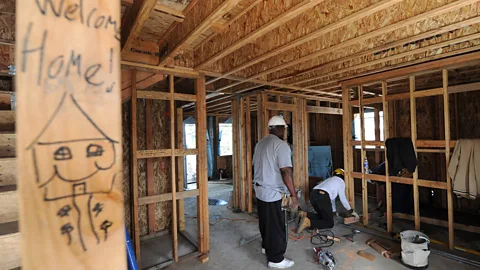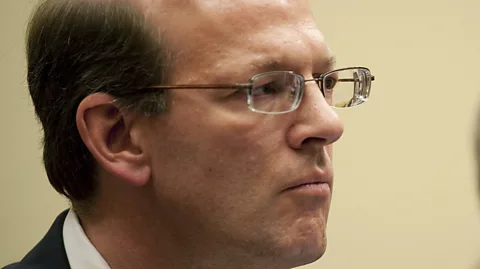The story behind one charity CEO’s Davos ambitions
 Getty Images/AFP
Getty Images/AFPAmid the dealmakers at Davos, one CEO wants to address poverty through housing.
Affordable housing for all is an ambitious goal but an agenda that Jonathan Reckford hopes to move forward as one of the 2,500-plus delegates at Davos this year. It’s his ninth visit to the conference in Switzerland.
Since 2005, he has led Habitat for Humanity International as chief executive officer. The nonprofit builds or renovates houses around the world to help people improve their living conditions. It has more than 70 affiliates globally and 1,400 local groups in the US. Its vision: a world where everyone has a decent place to live.
Reckford started his career on Wall Street and held management or executive roles at investment bank Goldman Sachs, hotel chain Marriott and Walt Disney Co, among others. Now, as the head of a global non-profit that has “helped more than 6.8 million people improve their living conditions” since 1976, Reckford’s mission at Davos is focused.
 Getty Images/AFP
Getty Images/AFPHe sat down with BBC Capital columnist Lucy Marcus to explain. Edited excerpts of their conversation follow.
Q: You’re here at Davos to focus on a couple of special issues. What are you going to talk about here?
A: I’m here as part of the Future of Cities, focused on sustainable cities and of course our particular issue is affordable housing and the desperate need [for more of it]. So many of our cities today aren’t built for their current population, let alone their future population.
Q: People are sometimes sceptical about whether people actually get anything done at Davos…. Why is it useful for you to come?
A: I think what’s unique about Davos is the convening power and for really complex issues we need multi-sector solutions. So, the fact that we have government leaders, corporate leaders and civil society represented allows a conversation that’s very hard to replicate in other places.
What we’ve seen is that decisions don’t get made here, but the relationships that get started here have led to progress outside Davos.
Q: So have you seen over time that it’s worth it for you to come and have these conversations, despite the expense?
A: To me it’s very efficient for the sheer number of meetings and relationships you can have, but also for meetings you probably couldn’t have in a lot of other places, in terms of that multisector approach. I’ve always found it productive and I’m always optimistic. You have to be in our world. But we want to make sure to try to get housing on the agenda because it’s remarkable how often housing is really left out of the poverty alleviation conversation.
Lucy Marcus is an award-winning writer, board chair and non-executive director of several organisations. She is also the CEO of Marcus Venture Consulting. Follow her Davos coverage for BBC Capital here and on Twitter @LucyMarcus.
